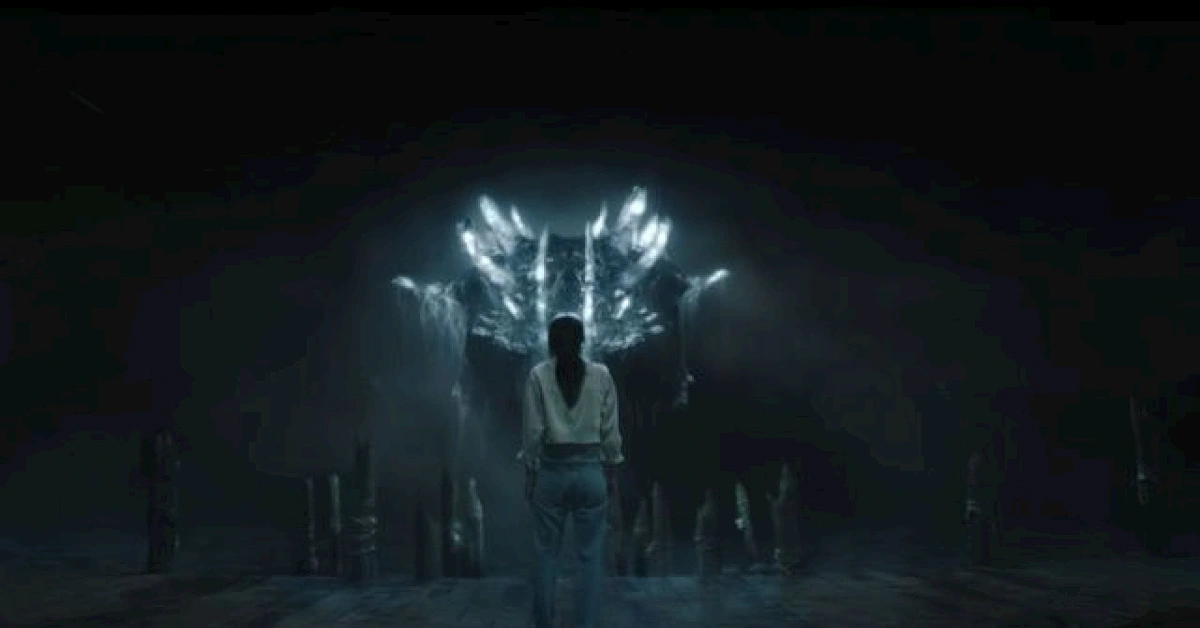After creating two of television’s most acclaimed dramas, Vince Gilligan has returned with a completely new kind of story. His latest series, Pluribus, debuted on Apple TV+ on November 7, 2025, and is already generating major award buzz. The show features a standout performance from Rhea Seehorn and presents a sci-fi concept that has critics asking a bold question: could this be Gilligan’s best work yet?
The Story of the Last Miserable Person on Earth
Pluribus is a genre-bending science fiction series that introduces a world transformed by a mysterious global event. An alien RNA signal, received by astronomers, has rewritten humanity’s DNA, turning nearly every person on the planet into a blissfully content member of a single hive mind. These infected individuals, known as the “Others,” are peaceful, share one consciousness, and refer to themselves as “we.”
At the center of this strange new world is Carol Sturka, played by Rhea Seehorn. Carol is a cynical, best-selling romance novelist who was deeply dissatisfied with her life even before the world changed. She discovers she is one of only thirteen people immune to the effects of “the Joining.” After her manager and romantic partner, Helen, dies during the transformation, Carol becomes utterly alone, surrounded by a humanity that has lost its individuality.
Gilligan described the show as his “twist on a post-apocalyptic zombie tale,” with the key difference being that the transformed people are “really, really happy people who still have all their faculties.” The show’s title comes from the Latin phrase “E pluribus unum,” meaning “Out of many, one,” which directly reflects the hive mind concept.
A Critical Triumph and Audience Favorite
The response to Pluribus has been overwhelmingly positive. The show has achieved a perfect 100% score on Rotten Tomatoes, a rating it maintained after its premiere weekend with 66 critic reviews submitted. Audience scores are also strong at 85%. Critics are calling it “one of the smartest, most entertaining shows of the year” and “one of the year’s best new shows.”
Many reviews highlight how the series successfully blends its high-concept sci-fi premise with the deep, nuanced character writing that made Gilligan’s previous shows so beloved. The series is being praised for its originality in a television landscape often filled with reboots and spinoffs.
The show has already drawn comparisons to other thought-provoking series like Severance, The Leftovers, and The Good Place, while also evoking classic sci-fi such as The Twilight Zone and Invasion of the Body Snatchers.
Rhea Seehorn’s Powerful Lead Performance
A significant part of the show’s success is the performance of Rhea Seehorn, who many felt was underrecognized for her role as Kim Wexler in Better Call Saul. Gilligan wrote the part of Carol specifically for Seehorn, and her performance is being hailed as a career-defining turn.
Seehorn carries the weight of the series, as her character is often the only traditional human in a scene. She masterfully portrays a complex woman who is sarcastic, difficult, and grieving, yet whose flaws make her intensely human and sympathetic. Her angry snark provides a sharp, often amusing contrast to the sickly-sweet friendliness of the hive mind.
Gilligan told Men’s Health, “’Pluribus’ is my twist on a post-apocalyptic zombie tale. The big difference is these people are not zombies. They’re really, really happy people who still have all their faculties.”
The series also stars Karolina Wydra as Zosia, a member of the hive mind who acts as Carol’s companion, and Carlos Manuel Vesga as another immune survivor. The late Miriam Shor appears in a guest role as Helen, Carol’s partner, whose memory continues to influence the story.
A Different Kind of Apocalypse
What sets Pluribus apart from other dystopian stories is its unique central conflict. The world is not plagued by violence or scarcity; in fact, problems like racism and crime have been eliminated. The horror of the situation comes from the loss of individual thought and the terrifying nature of forced happiness.
Carol is not fighting to survive in a brutal world, but to restore the right to be sad, angry, and individual in a world that is permanently, peacefully content. This creates a deeply isolating experience for her, making the show feel claustrophobic and, at times, profoundly depressing, even as it presents a world without overt suffering.
The show explores themes of community versus independence, and the value of all human emotions, not just joy. One critic noted that it may be “the best pandemic-related art we’ve gotten yet,” as it intelligently explores the trauma of isolation and the pressure to conform.
Also Read:
A Confident Start and a Long Future
Pluribus launched with its first two episodes on November 7, 2025. New episodes are released every Friday, with the nine-episode first season concluding on December 26, 2025. Even before its debut, Apple TV+ demonstrated strong confidence in the project by renewing it for a second season.
Gilligan has suggested he can envision the story continuing for about four seasons. This planned trajectory shows a clear creative roadmap, allowing the show to explore its complex world and characters in depth without overstaying its welcome.
The series is produced by Sony Pictures Television and features many of Gilligan’s longtime collaborators behind the scenes, including composer Dave Porter, who created a distinctive, choral-based score for the series.
Also Read: Dear X Episodes 7 and 8 Release Date: Everything to Know for November 20
The Real Book Behind Netflix’s Last Samurai Standing







































